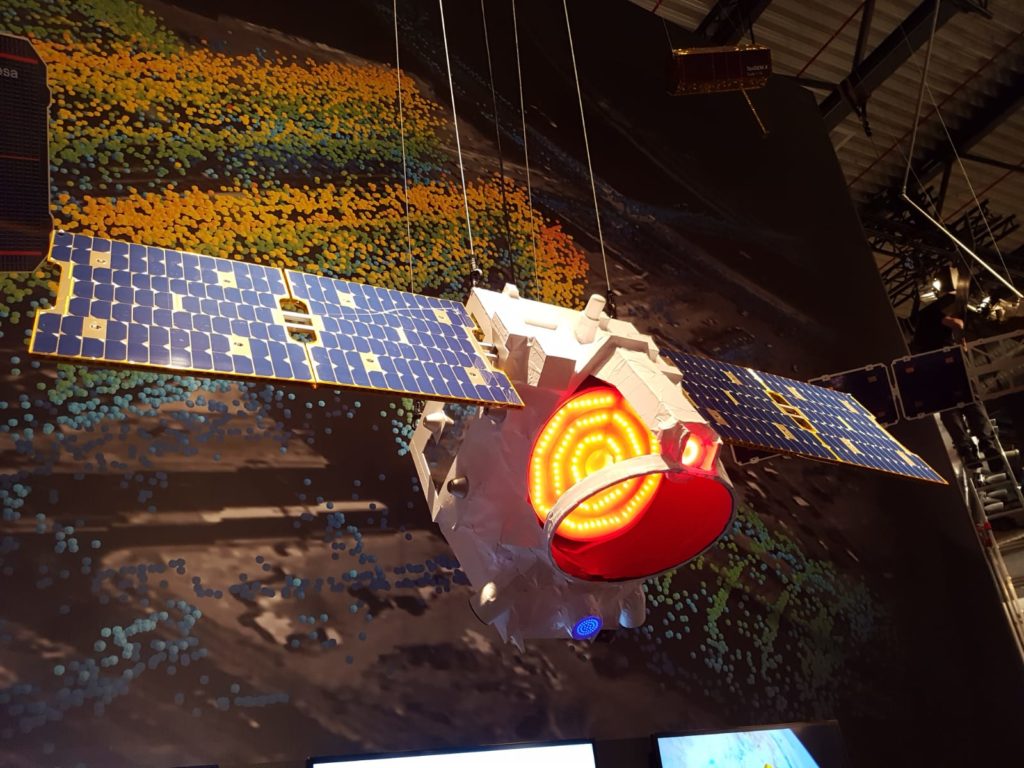Model of the German-French small satellite for detecting the greenhouse gas methane
The French-German small satellite MERLIN (Methane Remote Sensing Lidar Mission) is a climate mission designed to monitor the greenhouse gas methane in Earth’s atmosphere. The German Space Agency at DLR is leading the development and construction of a lidar (Light Detecting and Ranging) instrument with funding from the German Federal Ministry Economy and Climate Protection (BMWK). The platform supporting the instrument is a development of the French space agency CNES. MERLIN is scheduled for launch in 2029.
The aim of the three-year mission is to measure methane concentrations across the globe with high precision. This will enable the mission to provide information on the regions of Earth where methane is released into the atmosphere (methane sources) and where it is being removed (methane sinks). After carbon dioxide, methane is the second largest contributor to anthropogenic global warming. The United Nations Intergovernmental Panel for Climate Change (IPCC) recognises that methane has a much greater specific global warming potential than carbon dioxide. Moreover, the global methane levels have more than doubled since the beginning of industrialisation due to human-induced emissions; carbon dioxide levels have ‘only’ increased by 30 percent. In the future, the concentration of methane gas could increase even more. If, as a result of global warming, the Russian and Canadian permafrost thaws, the biomass stored in it could rot and release methane into the atmosphere. If the oceans warm up, enormous amounts of methane – which until now have remained frozen as gas hydrates in the marine sediment layers – could also be released. Both processes are accelerating climate change. The extent to which they actually occur cannot be determined using current satellites. This represents a major uncertainty in the models for the future development of the global climate. MERLIN will help to better understand the methane cycle to reliably predict climate change and effectively protect the climate.
Link:
German Aerospace Center (DLR)
German Space Agency at DLR, Department of Earth Observation
E-Mail contact-dlr@DLR.de
